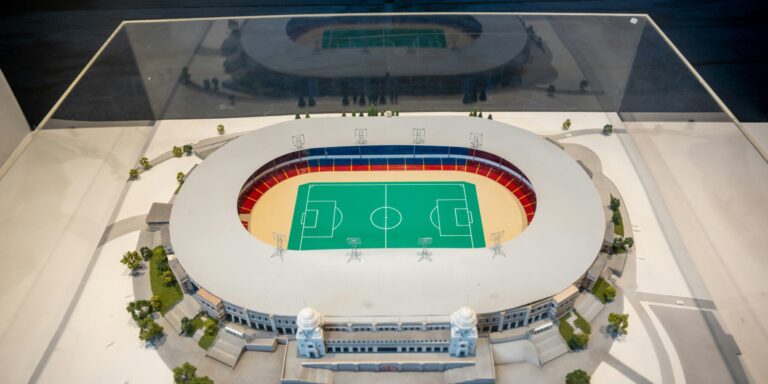WASHINGTON, D.C. — The D.C. Council is currently deliberating a proposed $3.8 billion agreement to construct a new stadium for the Washington Commanders at the historic RFK Stadium site. With a July 15 deadline looming, Mayor Muriel Bowser has emphasized the urgency of the decision, warning that delays could jeopardize $2.7 billion in private investment and potentially prompt the team to explore relocation options.
The proposed deal entails a significant financial commitment from both the Commanders and the city. The team, under the ownership of Josh Harris, has pledged $2.7 billion toward the construction of a 65,000-seat domed stadium, marking the largest private investment in D.C.’s history. In contrast, the District is expected to contribute approximately $1.1 billion for infrastructure improvements, including parking facilities, utilities, and recreational spaces surrounding the stadium.
Mayor Bowser has advocated for the swift approval of the deal, highlighting its potential to revitalize the RFK site and stimulate economic growth in the area. She has underscored the importance of meeting the July 15 deadline, which, if missed, could allow the Commanders to consider alternative locations for their new stadium.
However, the Council has expressed reservations about the proposed public funding component of the deal. Council Chairman Phil Mendelson has voiced concerns regarding the transparency of the financial projections and the potential burden on taxpayers. He has indicated that additional time is needed to thoroughly assess the deal’s implications and ensure that it serves the best interests of the city’s residents.
The Council is currently awaiting critical analyses, including a tax abatement assessment from the city’s chief financial officer and an independent consultant’s report evaluating the deal’s financial viability. These documents are essential for the Council to make an informed decision on the proposed agreement.
Despite the urgency conveyed by Mayor Bowser, some Council members have suggested that a vote on the stadium deal may not occur until the fall. Such a delay could conflict with the terms outlined in the agreement between the city and the Commanders, potentially jeopardizing the exclusivity of the negotiations.
The proposed stadium is envisioned as a catalyst for broader urban development, with plans for additional amenities such as housing, retail spaces, and recreational areas. Proponents argue that the project could generate substantial economic benefits and enhance the city’s appeal as a destination for major events.
As the July 15 deadline approaches, the D.C. Council faces the challenge of balancing the potential advantages of the stadium project against the concerns surrounding public investment and fiscal responsibility. The outcome of the Council’s deliberations will significantly influence the future of the RFK site and the Commanders’ presence in the nation’s capital.



